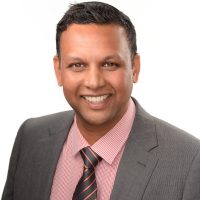Articles / Most GPs are underbilling everyday, latest survey finds

The recent media coverage of Medicare misuse has caused dismay but generated little progress in our search for solutions to the Medicare crisis.
A recent Healthed survey has confirmed that most doctors are deliberately underbilling on a daily basis. More than two-thirds of doctors surveyed claimed to underbill, suggesting that if the true cost of underbilled services was included in the accounting, the figures would show that in fact Medicare is rorting a lot of GPs.
The survey asked a national sample of GPs how often, on a typical day of clinical work, they would perform a service potentially rebatable on Medicare, but chose not to charge Medicare. Of the 346 GPs who responded to the survey, 68% said they did so at least at least once per day. Most, 45% of the 346, did so two to five times per day and 5% indicated they did this more than 10 times on a typical day, suggesting that the practice of underbilling is widespread and underreported.
When asked how often GPs undercharged for a clinical service for fear of triggering a Medicare audit, there was a similar pattern, with 64% of respondents indicating that they did so at least once on a typical work day and 48% doing so two to five times a day. The most commonly underbilled scenario appeared to be charging a Level B rather than a Level C consultation. This implies that the threat of a PSR audit causes GPs to alter their billing habits to their own financial detriment, despite providing what they consider an entirely appropriate clinical service.
Dr Margaret Faux’s thesis has become a touchstone for the media’s insistence on the $8 billion dollar figure. As a counterpoint, here is a 2016 study (using data collected between 2012 and 2014) of non-billable hours linked to the BEACH initiative and published in the MJA, whose findings confirmed those of our survey.
The study sampled 1935 randomly selected GPs from across the country. It measured non-billable time spent on patient care outside the patient’s actual consultation and tried to estimate its monetary value were it claimable from Medicare. Like the smaller Healthed survey, it found that 69.5% of GPs reported non-billable care outside patient visits. The reasons for non-billable time included arranging tests and referrals, consulting specialists or allied health professionals, medication renewals, and advice and education etc.
Their analysis found that more than 12% of consultations were associated with this kind of non-billable work and calculated that the notional average annual value per GP of this work was between $10,500 (if using a level A rebate) and $23,000 (if using a level B). Interestingly, female and younger GPs did more non-billable work. The researchers concluded that “GPs spend significant unpaid time on patient care between consultations. This is likely to increase as the population ages, with implications for planning changes to our current fee-for-service funding model.”
If that’s not enough, the AJGP published a similar study in 2021, using an even larger sample of 2907 GPs taken in 2016 from the MABEL dataset and it came to similar conclusions too. Specifically, that GPs, especially female GPs, spent more than 14% of their time on non-billable activities. The researchers again concluded that “The amount of non-billable work is likely to increase…the lack of reimbursement for much of this work challenges economic viability and GP job satisfaction.”
Both the MJA and the AJGP studies have passed the rigours of peer review, involve much larger sample sizes than some of the studies quoted by the media and use direct, robust measurements to generate primary data and both point in the opposite direction to much of what the media is claiming is in Faux’s thesis and yet there has not even been a token mention of these or similar studies that might contradict the current spin.
So we should not be surprised that when our GPs were asked about the impact of the recent media coverage on their view of their own practice they described it as “soul destroying,” “unfair”, “insulting” and “disappointing”, given the report was “belittling the entire medical profession”. In one GP’s words, “to assume we are all in some kind of billing rort is a downright misrepresentation”. Many felt that the conflation of unintentionally incorrect billing, mostly due to confusion about Medicare rules, with intentional rorting was a serious flaw in the media representation of why Medicare is failing.
The Faux thesis makes much of the idea of “leakage” of funds out of the Medicare system into the pockets of (allegedly greedy) doctors, but it seems that the leakage is happening in both directions. It is quite probable that leakage is spread unevenly across the medical system, with a lot of the unrecognised “reverse leakage” flowing from the day-to-day, sincere work of coalface GPs back into the system.
As many of GPs learnt in the pandemic, not only are they on the front line of delivering care, but they are at times also propping it up as the de facto source of its funding. It’s no wonder that many GPs feel that it is they who have been rorted by Medicare and so are doubly hurt when the media tries to convince the public that is the frontline GPs who shouldn’t be trusted.
Finally, here some thoughts on this direct from the coalface:
“The majority of doctors are decent, upstanding, law-abiding citizens who care very much about their patients. After busting their guts throughout the pandemic, they are now being subjected to slanderous claims by keyboard warriors and desk jockeys. The media has produced a story—at the expense of others’ blood, sweat and tears—for their own selfish gain. I am fed up with having to listen to yet another round of “doctor bashing” in the media. The real story is that Medicare has not kept up with the CPI, let alone inflation, for more than a decade. Doctors are being ripped off as a result. Who cares about them? …… If there really was up to 30% ‘leakage’ of Medicare funds, then how was it even able to happen in the first place? It looks more like the result of system design. Doctors are not in the business of scamming Medicare. They are in the business of looking after patients…. I am not a doctor, but a registered nurse who also happens to be a doctor’s wife. I stood by my husband throughout his undergraduate and specialist training and, as a family, we made many sacrifices for him to eventually be able to help patients get the best care possible. We do not live in a fancy house, drive fancy cars, drink champagne or go on expensive overseas trips. Our last holiday was a weekend spent camping in a tent, we shop at op shops and look out for sticker markdowns at the local supermarket. Now my husband is burnt out and talking about walking away from practising medicine altogether. To have all the hard work and sacrifices tarnished by the recent media reporting as if doctors are filthy rich, thieving scumbags is so incredibly disappointing.”
“I feel that very very few doctors would rort Medicare. You cannot judge an entire profession on those of us who continue to bulk bill in the main in order for the average Australian to access medical care. There are many of us who try to give a private service at bulk billed rates. Those of us who run privately owned, bulk billing clinics have to run a very tight ship to survive. We do not follow KPIs , we do not chase care plans, we try to do the best we can to remain financially accessible to our communities and hence charge bulk billed rates. To assume we are all in some kind of billing rort is a downright misrepresentation. We worked like demons to get the Covid vaccines out. What Medicare should do is to incentivise practices who remain open at weekends and pay a higher fee to GPs who keep patients out of ER by remaining open. This will help us attract GPs to our communities who currently struggle to get GPs to work on weekends. We are entitled to charge for what we do and paying us for telehealth has been game changing for us as a profession. Its about time we were recognised for the services we have done for free for decades and which during Covid helped thousands of isolated patients receive care. Telehealth being touted as a rort is ridiculous.”
“Another attack on a profession where most are working hard, not rorting Medicare and in fact usually underbilling. GPs have been working so hard during COVID in very difficult circumstances. I feel sorry for the profession and my colleagues. I am planning to retire sooner than I planned. I feel that there won’t be enough good GPs in the future. Management of chronic disease will decrease and there will be more presentations to emergency and in general worse health outcomes.”
“Sensationalist and sad – government has had decades to address this and the RACGP have been pathetic in supporting the maintenance of a decent rebate in general practice. I envy pharmacists with their Guild! At least they have a deeply partisan union ready to snatch the easy work from GPs from under the sniveling noses of RACGP bureaucrats.”
“It is sad. We have been working hard, avoiding billing 44 appointments. Also, paying huge taxes. Personally, I underuse Medicare. I could see patient 3 times for 10 min, but I am trying to do the maximum at one appointment (prescriptions, results, BP check and recommendations, etc)”
“Tar everyone with same brush.. will always be a small percentage of people in any profession who do the wrong thing. Why does the medical profession always seem to be singled out”
“Unjust especially for GPS who work so hard in optimizing patient health outcomes, especially during the pandemic when it was so stressful for all healthcare professionals.”
“Doctor bashing occurs every few years . Of course , there are always bad apples in every barrel. The work of the doctor on the whole still ranks high in the community.”
You can view the full survey here.

Menopause and MHT: Maximising Benefits & Minimising Risks

Multiple Sclerosis vs Antibody Disease – What GPs Need to Know

Using SGLT2 to Reduce Cardiovascular Death in T2D – Important Updates for GPs

Peripheral Arterial Disease

Yes
No
Listen to expert interviews.
Click to open in a new tab
Browse the latest articles from Healthed.
Once you confirm you’ve read this article you can complete a Patient Case Review to earn 0.5 hours CPD in the Reviewing Performance (RP) category.
Select ‘Confirm & learn‘ when you have read this article in its entirety and you will be taken to begin your Patient Case Review.
Menopause and MHT
Multiple sclerosis vs antibody disease
Using SGLT2 to reduce cardiovascular death in T2D
Peripheral arterial disease
